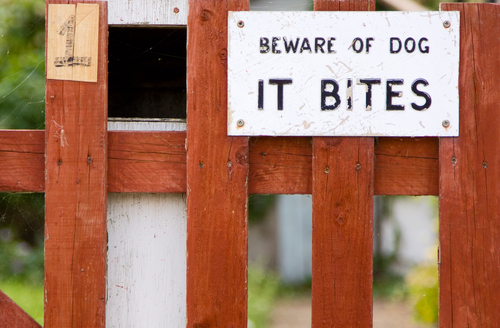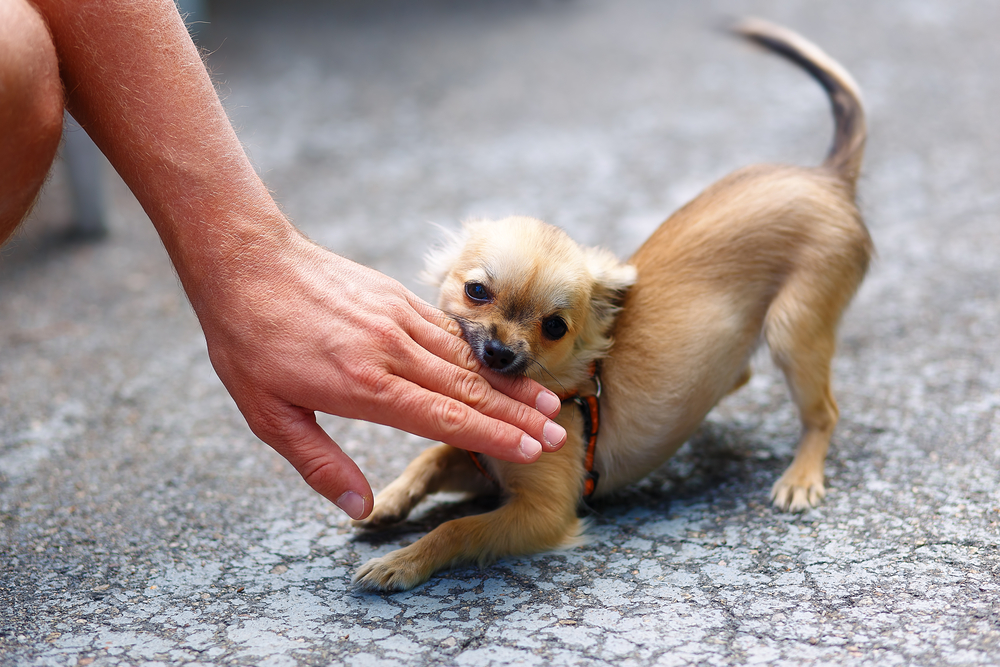As Illinois personal injury attorneys, we have handled many cases related to dog bites. Understanding which dogs are more likely to bite is a matter of public safety and has legal implications under Illinois law. This blog post aims to provide insight into canine behavior and breed tendencies concerning biting incidents, alongside an overview of relevant Illinois statutes governing liability in dog bite cases.
Understanding Illinois Dog Bite Law
In Illinois, dog bite cases are governed by the Animal Control Act (510 ILCS 5/). This statute holds the dog owner or custodian liable if their dog bites a person without provocation and the person is conducting themselves peaceably in a place they are lawfully allowed to be. This law employs a strict liability approach, meaning the victim does not need to prove the owner’s negligence. Dog owners must understand this liability, underscoring the importance of responsible pet ownership and training.
Canine Behavior and Bite Tendencies
While any dog can bite under certain circumstances, studies and statistical analyses suggest that certain breeds exhibit a higher propensity for biting. It’s important to note that a dog’s tendency to bite is often influenced by various factors, including breeding, training, socialization, health, and the environment in which it is raised. Breeds often cited for higher bite incidents include Pit Bulls, Rottweilers, German Shepherds, and some terrier breeds. However, it’s crucial to understand that breed alone doesn’t determine a dog’s likelihood to bite; individual behavior plays a significant role.
Risk Factors for Dog Bites
Beyond breed, other factors contribute to the likelihood of a dog bite. These include lack of socialization, poor training, a history of aggression, the dog’s health status, and the context in which the dog interacts with people. Dogs that are scared, in pain, or protecting their territory or offspring are more likely to bite. Additionally, situations where a dog feels trapped or unable to escape can increase bite risk.
Legal Responsibility and Prevention
As a personal injury attorney, I have advised clients on the prevention and legal ramifications of dog bites. Prevention is key and includes responsible pet ownership, such as proper training, socialization, regular veterinary care, and understanding of dog body language. Legally, owners are advised to familiarize themselves with local ordinances in addition to state laws, as some Illinois municipalities have specific regulations regarding certain breeds or require additional insurance coverage.
The Dog Bite Injury Lawsuit Process in Illinois
In Illinois, the dog bite lawsuit process involves several critical steps, each necessitating a skilled attorney. From the initial filing to potential settlement or trial, a lawyer’s guidance is crucial for navigating the complexities of Illinois law, ensuring proper representation, and advocating for the victim’s rights and interests.
1. Initial Consultation and Case Evaluation – The first step after a dog bite incident is to consult SJ Injury Law. An attorney’s role here is to evaluate the case, assess the injuries and circumstances, and determine the feasibility of a claim under Illinois law (Animal Control Act – 510 ILCS 5). We will gather essential information, offer legal advice, and outline the possible outcomes of pursuing a claim or lawsuit.
2. Investigation and Evidence Gathering – A thorough investigation is crucial for building a solid case. SJ Injury Law will collect evidence, including medical records, photographs of injuries, witness statements, and any available information about the dog and its owner. We will also investigate the dog’s history and determine if there were previous incidents of aggression or bites, which can significantly strengthen the case.
3. Filing the Lawsuit – Once the evidence is gathered, we will make a claim or file a lawsuit on behalf of the victim. This involves drafting and submitting legal documents to the appropriate court. Our experienced attorneys ensures that the lawsuit is filed within the statute of limitations (generally two years in Illinois for personal injury claims) and adheres to all procedural requirements.
4. Negotiating with Insurance Companies – Most dog bite cases involve negotiations with insurance companies. Our attorney’s role is to handle these negotiations on behalf of the victim, aiming to secure a fair settlement that covers medical expenses, lost wages, pain and suffering, and other damages. SJ Injury Law’s experience in dealing with insurance adjusters and understanding of the law is invaluable in preventing lowball offers and ensuring adequate compensation.
5. Preparing for and Going to Trial – The injury case may go to trial if a settlement is not reached. Our attorneys prepare the case for court, including gathering additional evidence, prepping witnesses, and developing a compelling argument. During the trial, we present the case, cross-examine witnesses, and work to persuade the jury of the defendant’s liability and the extent of our client’s damages.
6. Post-Trial and Appeals – Even after a verdict is reached, the role of your attorney may continue. We can assist with post-trial motions or appeals if necessary. If the verdict is in the victim’s favor, the attorney helps collect the judgment, ensuring the victim receives the compensation awarded.
Experienced Legal Representation Is Key To Maximum Compensation
Each step in the Illinois dog bite lawsuit process is intricate and requires legal experience. SJ Injury Law provides the necessary legal knowledge and skills and offers support and guidance through what can be a challenging and emotional experience for the victim. Their representation is key in navigating the legal system, advocating for the victim’s rights, and striving for the best possible outcome.
Understanding which dogs are more likely to bite, coupled with knowledge of Illinois dog bite law, is essential for both dog owners and the general public. While certain breeds are statistically more likely to bite, individual dog behavior, training, and the owner’s responsibility are critical in preventing such incidents. In the unfortunate event of a dog bite, Illinois law provides clear guidelines on liability, emphasizing the importance of responsible dog ownership. Consulting with our experienced Illinois personal injury attorney can clarify legal options and rights for those affected by a dog bite.
Call SJ Injury Law’s Schaumburg Dog Bite Lawyers For Legal Justice!
If you or a loved one suffered a dog bite, understanding your valuable legal rights is crucial. At SJ Injury Law, we help you navigate the complexities of Illinois dog bite laws to help you get the justice and compensation you deserve. Our experienced team is committed to providing exceptional legal representation. Don’t let uncertainty overtake you – take the first step towards recovery. Contact our Schaumburg dog bite lawyers at SJ INJURY LAW at (847) 434-3555 to receive your free injury consultation. Let us be your advocate during this difficult time.


